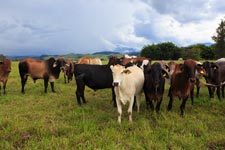Voluntary Recall: Is Your Food Business Prepared to Act Quickly?
By Allan Stirling
The unthinkable has happened in your food business: you’ve just found out that some of your product has been subject to “malicious tampering” and it left your warehouse two days ago bound for numerous global locations.
Is your organization prepared? If you answered ‘yes’ to this question, your food business is likely ready to exercise a voluntary recall to mitigate and manage risk, exercise due diligence, with little to no unintended consequences for your customers.
Expect the best, prepare for the worst.
Expect the best, prepare for the worst. This is a mission statement that can guide all modern day food businesses through the journey of risk management and root cause analysis; it brings with it responsible organizational food safety culture with respect to a voluntary food recall.
Waiting for the inevitable to happen is dangerous. There is much at stake: reputational risk, branding risk, economic risk and public health consequences.
The Voluntary Recall Procedure
The precursor to an effective voluntary recall is the recall plan. It should be valid and reliable. It should also be practiced and evaluated for effectiveness by employing mock recall training in your food business.
External consultants astute in risk assessment, protocol and crisis management can be resources for assisting your organization with the successful implementation of the recall plan, crisis management planning and mock recall training, both pre-incident and post-incident
Adopting Specific Training Components
Paramount to success in any food business is a holistic food safety culture. Developing food safety culture in your organization includes the following training components, as the gold standard for all food business.
- Pre-Incident Management Training – should include risk-based food handler training and certification; tool box trainings in multiple languages
- Malicious Product Tampering (MPT) Training– this should cover investigative response and media response planning
- Public Relations and Crisis Communications Training – to handle the appropriate pre-incident news and social media plans
- Mock Recalls – to role play active food recall scenarios with the response team; should be measured against key performance indicators
- Business Continuity Planning – a preventive action strategy to reduce risk, followed by a documented reflection on business impact, (responding to and recovering from) the unintended consequences of a ‘recall’
 Measuring the Success of a Voluntary Recall
Measuring the Success of a Voluntary Recall
The ability to measure the true life cycle from beginning to end in the supply chain, also known as “whole chain traceability” in a voluntary recall scenario is the most important key performance indicator. That is, every ingredient in every food product is able to be traced forward and backward to each and every supplier.
Fundamentally speaking, the measurement of recall effectiveness is aligned with the accuracy and execution of processes that identify the product manufactured, distributed and reconciled on a global level.
Can your organization completely reconcile your product from start to finish with “true end-to-end traceability”? Electronic lot code tracking, an emerging software tool, can assist with the reconciliation of product and raw materials in the supply chain to detail every location to which that product was shipped. Adopt it; embrace it!!
The Competitive Edge
The food business should incorporate the planning, coordination, training and management of the voluntary recall process and consider it a competitive edge in day-to-day business, rather than as the cost of doing business. The resultant mind shift will develop a food safety culture in a top-down, as well as a bottom-up approach.
Under FSMA the, the Corrective Action & Preventive Action (CAPA) plan is a pro-active system for voluntary recall; a system to identify, solve and prevent the reoccurrence of food safety incidents.
Voluntary recall preparation can be the competitive edge to your food business, which will ultimately set you apart. Take matters into your own hands and be strategic; prepare for, practice for and systematically train for it. Your organizational food culture critics will thank you.
About The Author
Allan Stirling, MPH, CPHI(C) is Principal of AR Stirling Consulting Inc., specializing in pre-incident training and development, gap analysis, cross-cultural food handler training, curriculum development and management. Allan is also a certified public health inspector and certified Halal Auditor. For further inquires please contact Allan at [email protected]

-
 FeaturedRisk management
The Cost of a Breach: What a Cyberattack Could Mean for Food Safety Recalls
FeaturedRisk management
The Cost of a Breach: What a Cyberattack Could Mean for Food Safety Recalls
-
 FeaturedRisk management
Securing the Food Chain: How ISO/IEC 27001 Strengthens Cybersecurity
FeaturedRisk management
Securing the Food Chain: How ISO/IEC 27001 Strengthens Cybersecurity
-
 FeaturedRisk management
Revolutionizing Food Safety Training: Breaking Out of the “Check-the-Box” Mentality
FeaturedRisk management
Revolutionizing Food Safety Training: Breaking Out of the “Check-the-Box” Mentality
-
 GFSI Standards
GFSI 2025: Building Trust, Tech-Forward Solutions, and Global Unity in Food Safety
GFSI Standards
GFSI 2025: Building Trust, Tech-Forward Solutions, and Global Unity in Food Safety
-
 FeaturedFood Safety
Integrated Pest Management: Strategies to Protect Your Brand’s Reputation
FeaturedFood Safety
Integrated Pest Management: Strategies to Protect Your Brand’s Reputation
-
 FeaturedFood Safety Culture & Training
No Open Door Policy: Challenges That Impact Pest Control in Food Processing Plants
FeaturedFood Safety Culture & Training
No Open Door Policy: Challenges That Impact Pest Control in Food Processing Plants




